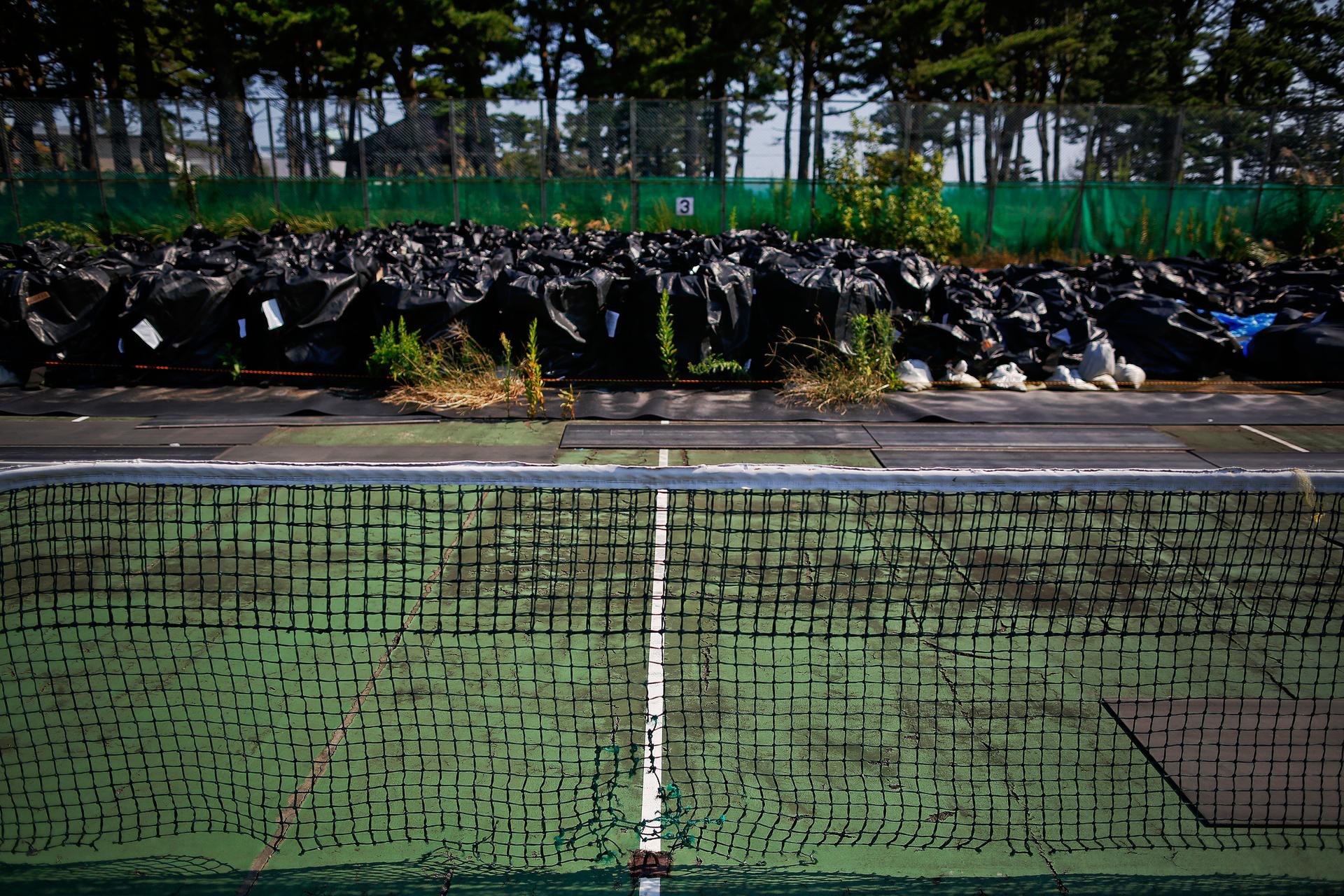A reporter covering the Fukushima nuclear meltdown actually lived through Chernobyl
Big plastic bags containing radiated soil, leaves and debris are dumped at a tennis court at a sports park near the Fukushima Daiichi nuclear power plant.
Reporter Yuriy Humber of Bloomberg News was only 6 when the Chernobyl nuclear accident occurred on April 26, 1986 in Ukraine. Humber and his family lived in neighboring Belarus, right on the border with Ukraine, and Chernobyl.
"One strange visual that I remember is standing by my grandfather and watching TV and being told about a nuclear accident," he recalled. "Of course, I was only 6… so it didn't have a great impact on me right then."
"But, I remember everyone else in the room being very quiet. During the May 1st sort of Communist Party celebrations, everybody was out on the streets parading, waving red-flags and I remember my father saying that, during the day, it rained an odd kind of yellow-orange-rusty colored rain. And he said he felt kind of sick. He was coughing. He didn't know what was wrong."
Of course, Humber said, eventually, they did know what was wrong.
"The worst thing about the Soviet disaster compared to the Fukushima accident, I would say, is that the item on the news which I watched as a young child, would have been about two and a half, maybe three weeks after the actual accident," he said. "What happened under the Soviet system was the authorities didn't take it very seriously. Secondly, they were very concerned about panic spreading."
"People who were able to listen to foreign radio," he said, "picked up on the news and started spreading it socially, you know word of mouth. And suddenly, the population is getting worried.
And I remember that all the schools in the town tried to send kids to a special summer camp to some part of the Soviet Union, quite far away, where kids could run around and spend as much time away as possible."
Humber said, unlike in Belarus, while there were some information gaps in Fukushima, the public can check other resources and decide for themselves if they "want to consume food grown in Fukushima or areas around Fukushima. So, I think despite all the problems at Fukushima, at least, I would say, there is greater awareness of what's going on."
The photo is Yuriy Humber at age 6 with his mother in the town of Gomel, Belarus, across the border from Chernobyl.
We want to hear your feedback so we can keep improving our website, theworld.org. Please fill out this quick survey and let us know your thoughts (your answers will be anonymous). Thanks for your time!
